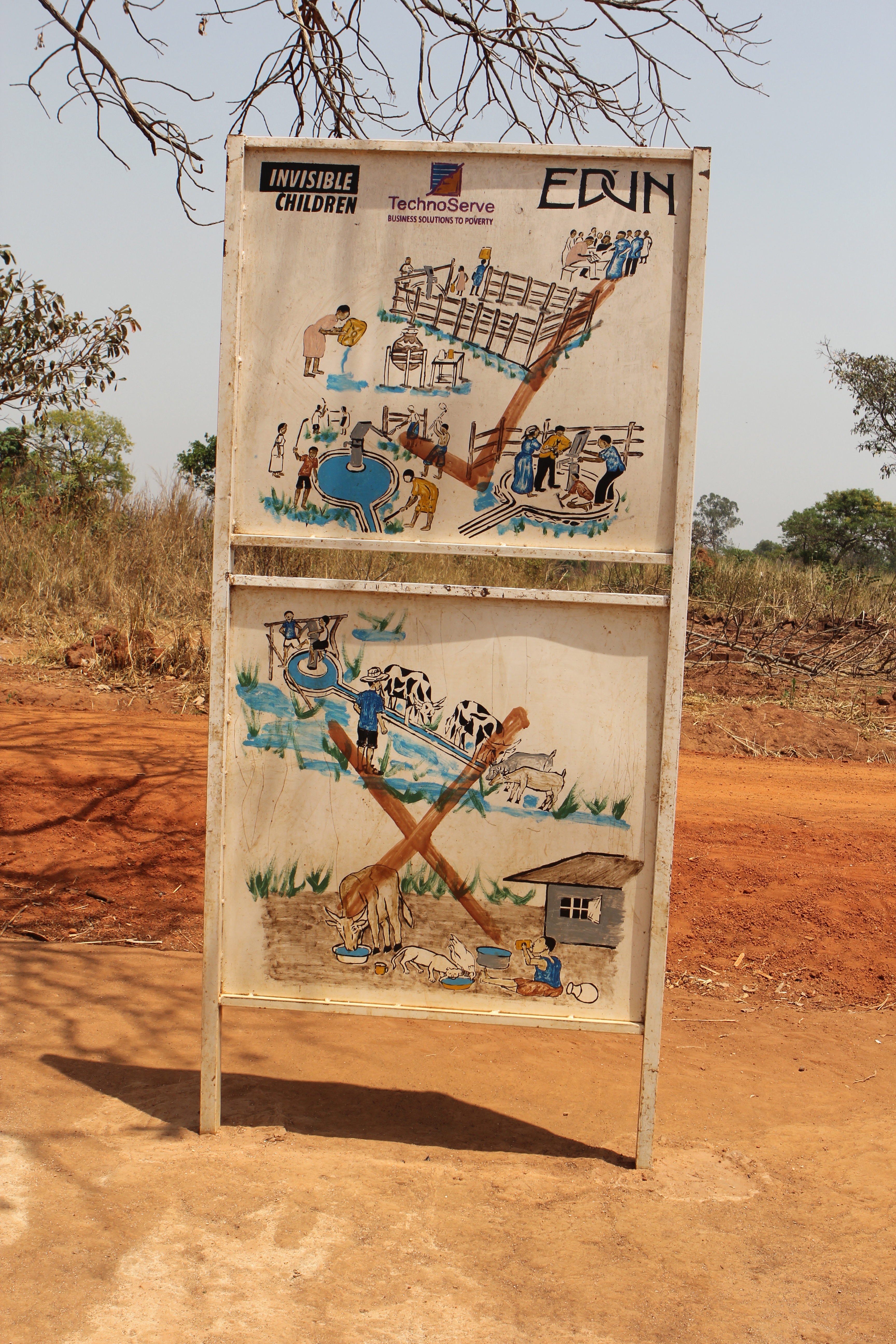Have you heard about our Water, Sanitation and Hygiene (WASH) program? This project hasn’t gotten a lot of publicity lately, but it is no less important than the rest of the work Invisible Children has done in northern Uganda. It’s also unique, in that the program is almost entirely community led. Not long after Invisible Children supports a community by digging boreholes and providing trainings, the community takes over most responsibility of the water point.
The way our WASH program works is a classic example of empowerment.
Accessing safe water remains an challenge for millions of people around the world. But, by providing boreholes, as well as water usage trainings, Invisible Children helps to combat this problem. These intensive trainings, as well as the building of a Water User Committee (WUC), leaves the community prepared to take control over borehole management themselves. In turn, they are able to lead happier and healthier lives.

Signs like this are placed at each of the boreholes drilled by Invisible Children. On one side, texts explains best borehole practices. On the other (pictured above) paintings example to users how to use the borehole safely and keep the water point clean. This makes the information accessible even to those who cannot read.
So what happens when a safe water point is easily accessible for community members?
Improving health: Waterborne diseases are dramatically reduced by increased access to safe water. According to the World Health Organization, over 2 million people die each year due to diseases caused by unsafe water. Rural communities are often affected more than urban communities and many of these deaths are of children younger than five years of age. This trend of illness and mortality is reducing as more people have access to safe water.
Increasing gender equality: Collecting water is often a task completed by women and children. By having a water point located closer to her house, a woman saves a significant amount of time and energy while already reducing her risk of disease that might come from a contaminated water source and any sexual harassment she might face on the way to collecting water, especially in the evenings. In turn, women and girls especially have more time to pursue other activities, such as income generation and education, that they would not have time for previously.
Economic growth: Families that spent less time fetching water have time to invest in projects that will improve their economic condition. Based on our WASH model, families contribute a small amount of money each month that will be saved and invested in borehole repair and maintenance. Thus, they learn the importance of saving money for the future, which can have an enormous benefit in one’s future livelihood. While our livelihoods team regularly monitors the functionality of each borehole, community members are also empowered to work with their local government to ensure that boreholes are repaired well.

Think people should hear about this?